I'm happy that you guys decided to tell about the simple things - giving your children independence. So many parents don't notice how they steal it from them and hide it under "I simply give him/her my love and care!"
How to Talk to Your Child at Every Age
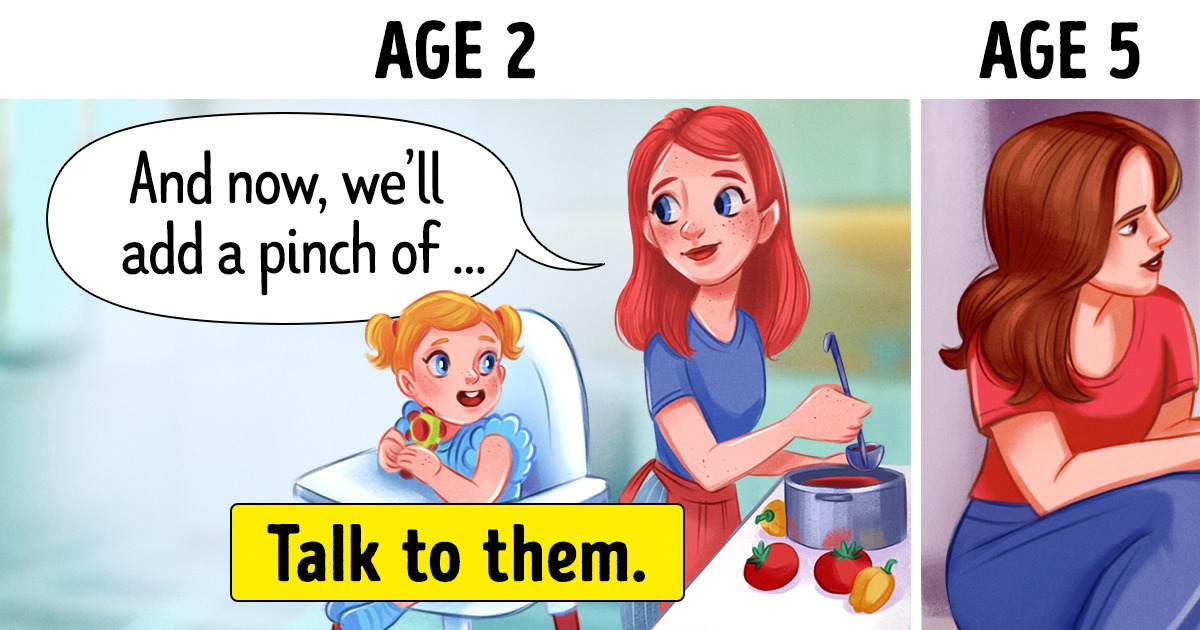
A child starts to depend on their family from the moment they were born and this bond tends to grow stronger throughout the years. But as a kid becomes more independent and starts pushing boundaries looking for their own place in the world, parents may get lost and not know how to communicate with their suddenly-grownup children. Every age is beautiful and challenging in its own way, and it’s the parents’ job to make the most of it.
Bright Side believes that strong and happy relationships inside the family are the foundation of a child’s development, so we’d like to share some tips that will help parents to successfully communicate with their kid at any age.
0-2 years old: Build an emotional connection and help them discover the world.
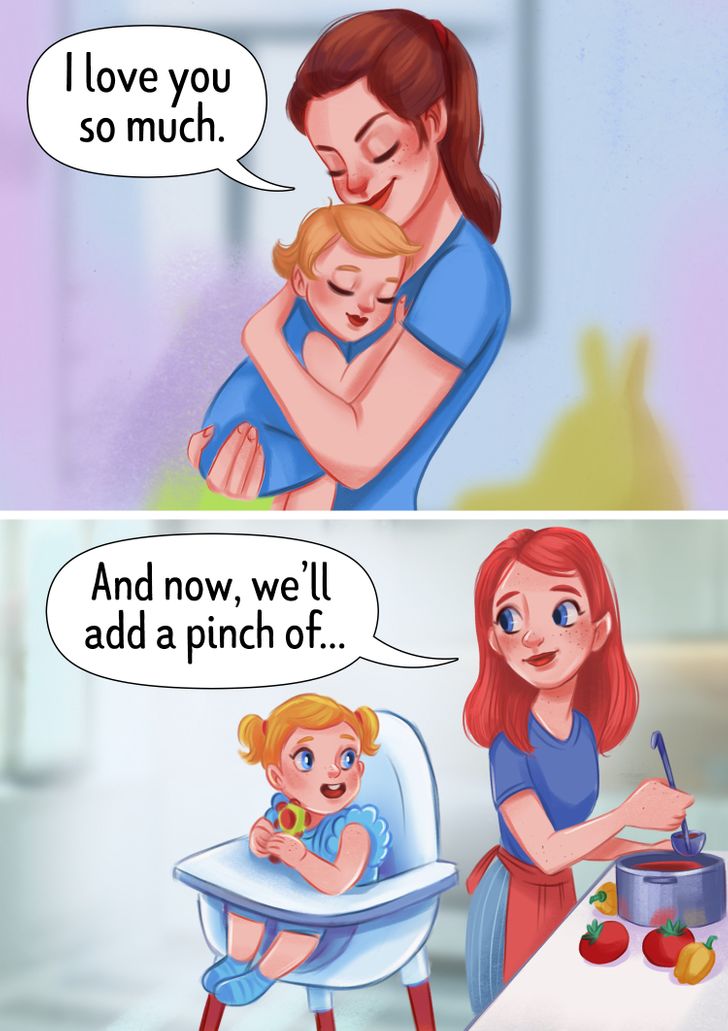
Children at this age are growing and developing new skills very quickly, so they need their parents to help them adapt to the world. They can communicate their needs in a very limited way: experts say that children can usually use about 50 words by the age of 2 and use crying as their main means of communication.
Children at this age crave physical contact since it calms them down and facilitates their development. They need to develop their physical abilities through interaction with other people, playing games, and touching.
What parents should do:
- At this point in their life, a child needs the undivided attention of their parents, so they can develop physically, emotionally, and socially. Parents should talk to their children as much as possible and comment on their actions, so a child can improve their verbal skills.
- Children copy the behavior of the people around them and may mimic their emotions. It’s essential to respond to the signals your child is sending you and be consistent with your response, so a child can build a connection between their actions and the reactions of other people.
- Keep in mind, that children can easily feel the mood of their parents and copy it. So it’s better to try to stay calm, positive, and friendly. It’ll help the child feel safe and promote your emotional connection with them.
3-5 years old: Encourage their curiosity and let them learn things about themselves.
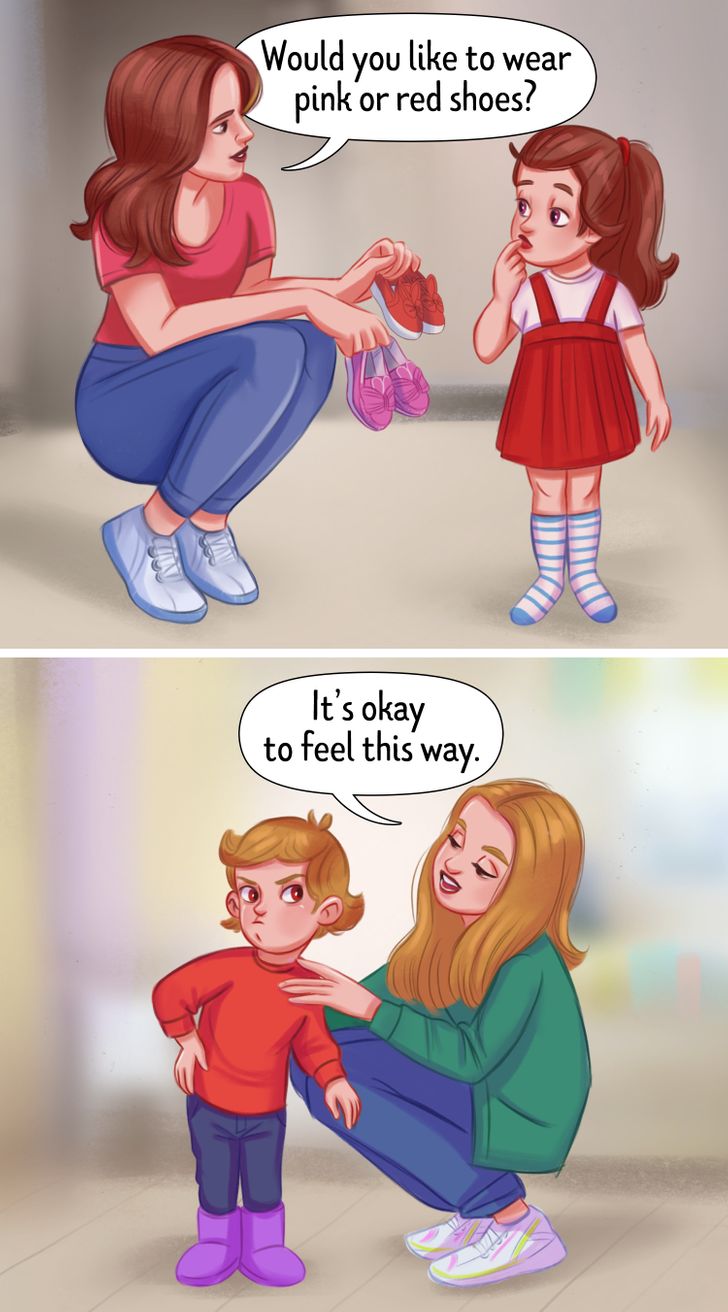
Preschoolers are naturally very curious and tend to bombard you with millions of questions about the world. They are just starting to learn how to communicate with other people verbally and may still have problems with understanding how they should interact with people.
It may be difficult for them to focus on future events and they rarely think ahead. They may have problems focusing on one task for a long time and building a connection between different events. Children at this age may also confuse their emotions and not really know how to manage them.
What parents should do:
- Find some time to answer all the questions your child may have for you and listen to what they have to say. If you get distracted, the child will notice it and, for them, it may mean that while you’re present physically, you’ve abandoned them mentally.
- Don’t expect too much from your kid when it comes to a conversation and you need to help them navigate the world. For example, when you ask your child’s opinion on something, give them a limited choice so they don’t have to come up with an answer on their own.
- Teach your child that it’s fine to feel different kinds of emotions and that anger or frustration don’t make you a bad person. But it’s important to differentiate these feelings and learn how to manage them.
6-8 years old: Appreciate their early signs of independence and be prepared to answer their first “adult” questions.
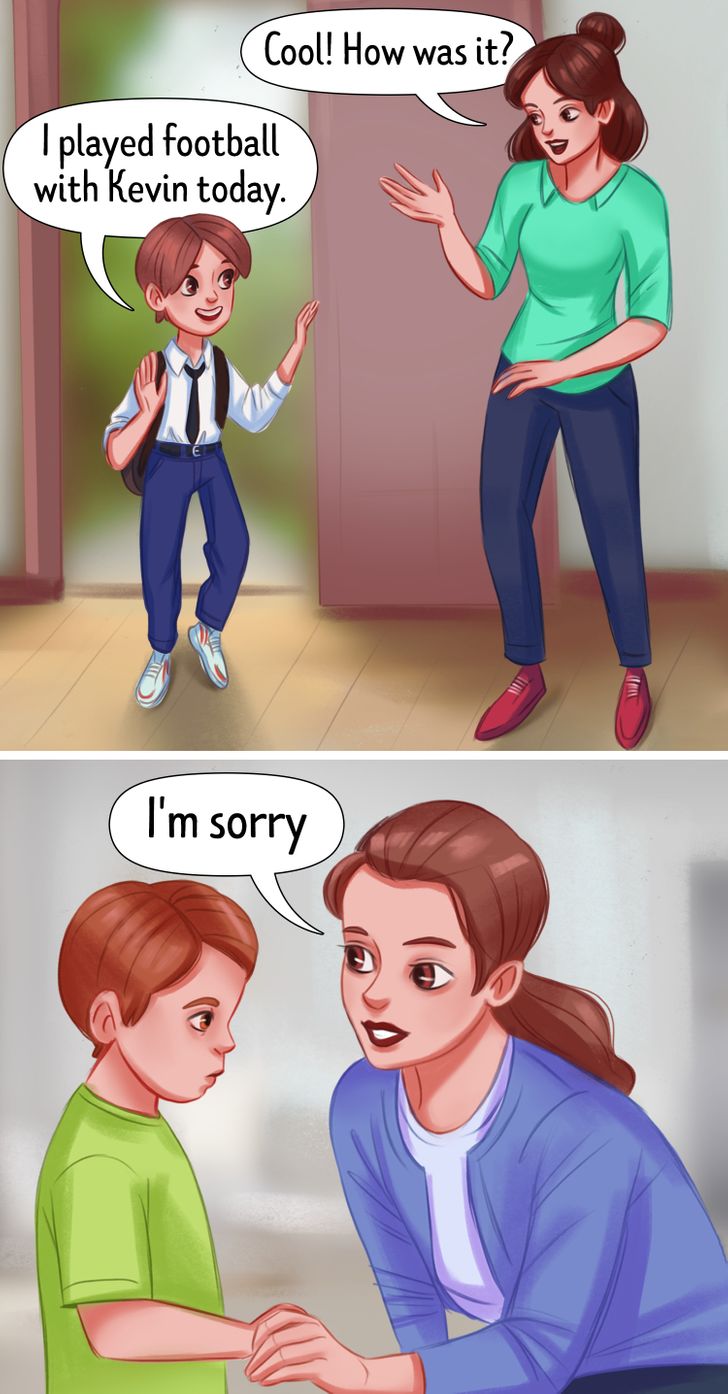
At this age, children usually start going to school and, for the first time in their life, they get to spend a lot of time without their parents, interacting with their peers. They start to feel more independent and explore their own ideas and personality traits.
But the relationships inside the family are still the most important ones for the child. Kids at this age may be very sensitive to criticism and easily embarrassed.
What parents should do:
- Encourage your kids to explore their passions and focus on their achievements, rather than criticizing them for doing something wrong.
- Acknowledge their independence and don’t act like you always know better. Be ready for a compromise and always apologize if you were wrong.
- Discuss ideas and concepts that are important for your child. Ask them open questions and listen to what they have to say to you.
9-11 years old: Show that you see them as mature people and be respectful.
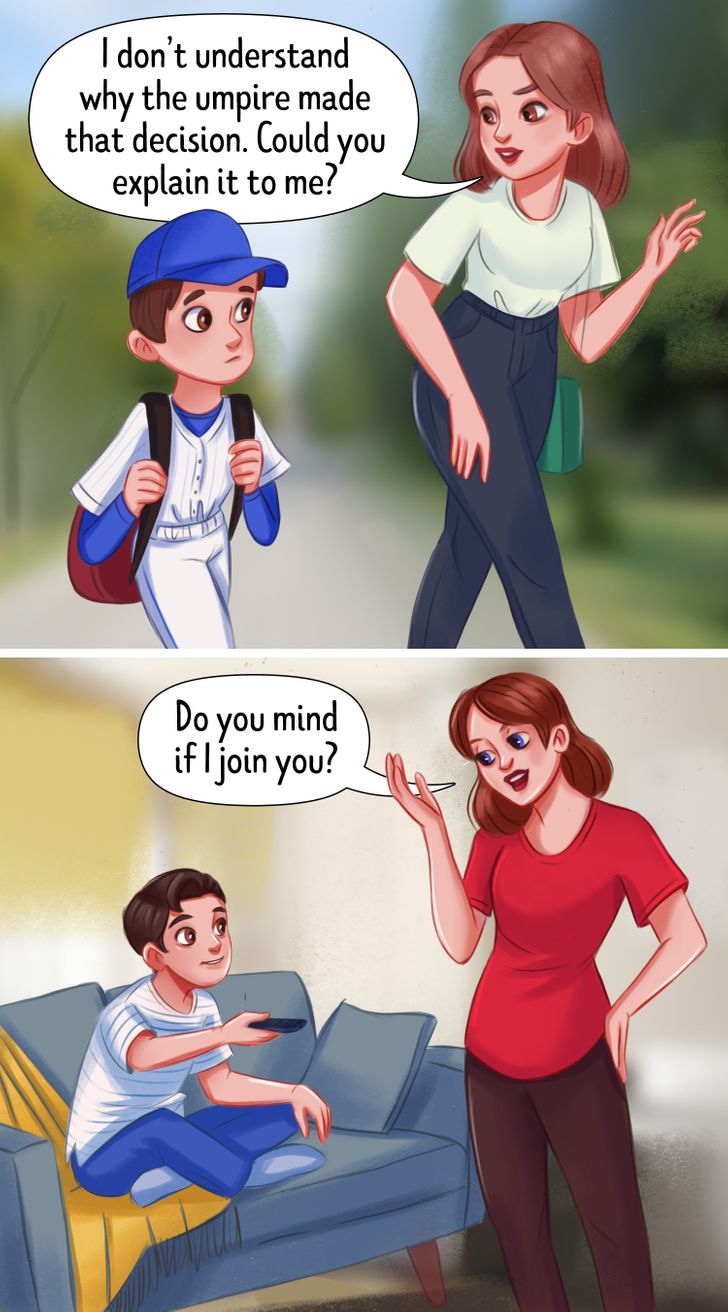
Preteens may act like they don’t need help from their parents anymore. They seek more privacy and often confide in their peers, instead of their parents. They need more personal space and may start pushing boundaries. Your kid may not be the cute little angel that they were a year ago and now they may show some resentment toward your rules.
But the funny thing is that children at this time still need you the most, even if they don’t realize it. They’ll go into adolescence in a couple of years and they’ll need all your love and support during this turbulent period that is full of drama and crazy hormones.
What parents should do:
- Try to find a common interest that may help you connect. Don’t try to force a conversation and bombard your kid with questions about their day at school. Pick a topic they’re genuinely interested in and just listen.
- Find a way to do some fun activities together. Don’t insist on spending time together just because you have to do it as a family. Instead, try to truly connect to your child and spend quality time together that will bring pleasure to both of you.
- Show that you’ll love them no matter what. Even if your child acts like they’re the most independent person in the whole world, they still need to know that you’ll have their back and that they can trust you and rely on your unconditional love.
12-18 years old: Value their privacy by showing your trust and actively engaging in the conversation.
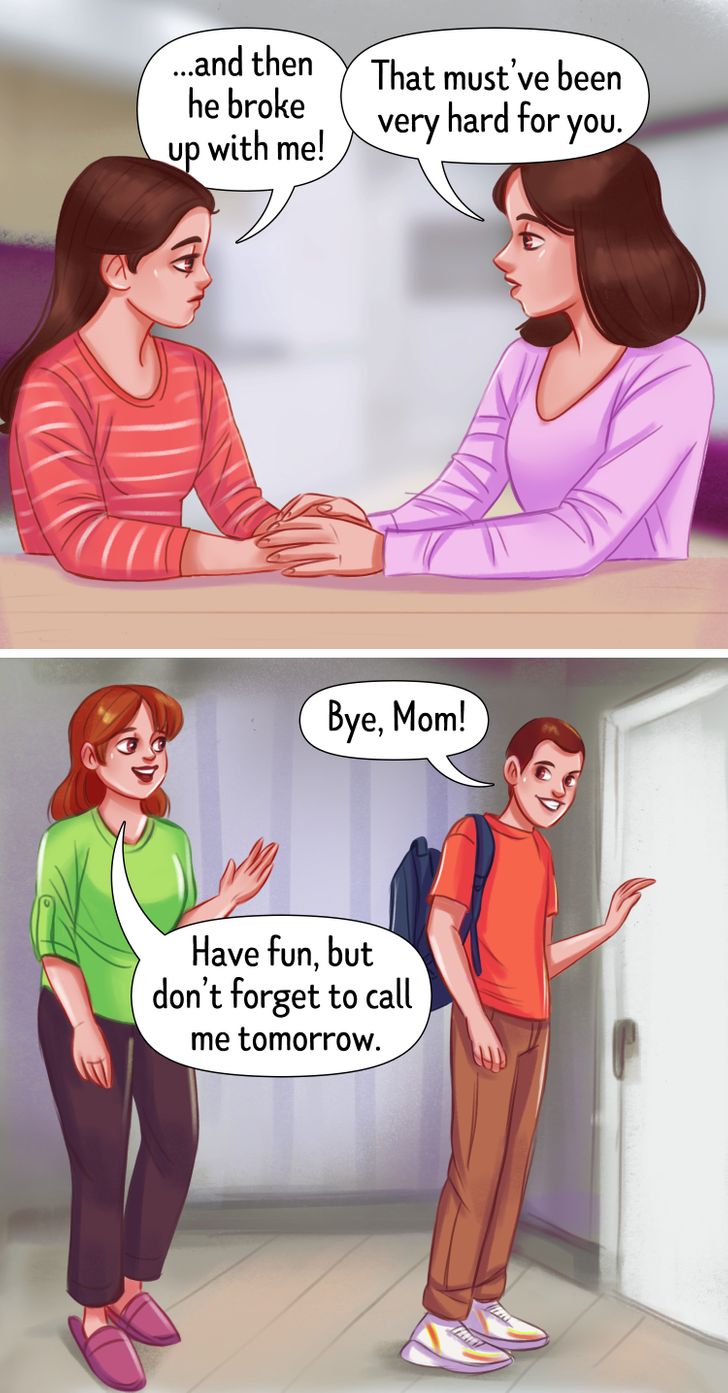
The teenage years can be one of the most exciting, yet scary periods in the relationship between children and parents. Kids start to think that they’re already grown up and crave independence. They start to make their own decisions, but in comparison with their preteen years, these decisions may have a real impact on their future life.
Teenagers usually don’t know how to manage their emotions. They are more likely to act without thinking first and make impulsive decisions that they may regret. Teenagers are still learning about their personality and pushing their boundaries, taking many of their actions to the extreme.
What parents should do:
- Acknowledge their feelings and support them, even if the problem seems minor to you. Show that you understand them and that dealing with high school drama may be as challenging as with a failed test. Praise your children for their successes and tell how much you love them.
- Don’t try to control your kids all the time. Children can quickly become pretty good at lying and hiding information, so they’re likely to find a way to break your rules if they really want to. Your job is to create a safe space and show to your kid that the rules exist not because “you said so,” but because it’s for their own benefit.
- Don’t take your child’s actions and words personally. When your child ignores you or throws a tantrum, they are trying to dominate you and show you who the boss is now. Don’t fall for this trick and stay adult in this situation by controlling yourself and looking for ways to reconnect with your kid.
What hacks do you use when you communicate with your child? Has your relationship ever gone through a rough phase? How did you manage to fix it?
Comments
Good??
Related Reads
12 Moments That Teach Us to Stay Kind, Even When Life Becomes Heavy
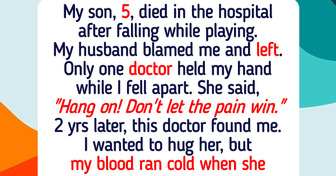
12 Moments Where Quiet Kindness Turned Strangers Into Family

15 Stories That Teach Us to Choose Kindness, Even When the World Goes Blind
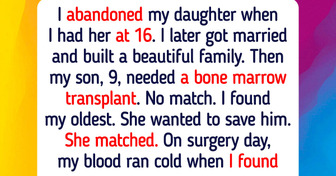
15 Moments That Inspire Us to Be Kind, Even When the World Turns Against Us
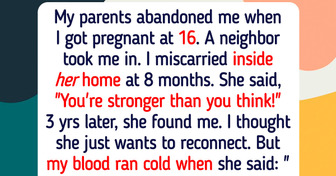
15 Moments That Show Kindness Is Quiet but Changes Everything

12 Life Moments Where Quiet Kindness Played the Main Role

I Funded My Wife’s Luxury Demands—She Made Me Regret Every Penny

16 Stories That Prove Kindness Still Wins in Our Broken World
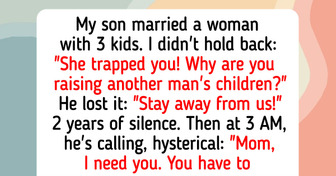
I Refuse to Forgive My Wife for What She Did to My Son

I Refused to Follow My Boss’s Dress Code—HR Had to Step In

I Refuse to Let My Sister Get Away Without Repaying My Money, I’m Not Charity
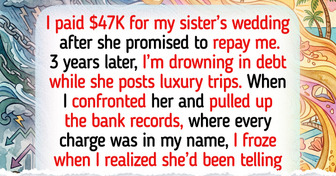
I Refuse to Help My Pregnant Sister, and I Don’t Feel Guilty
